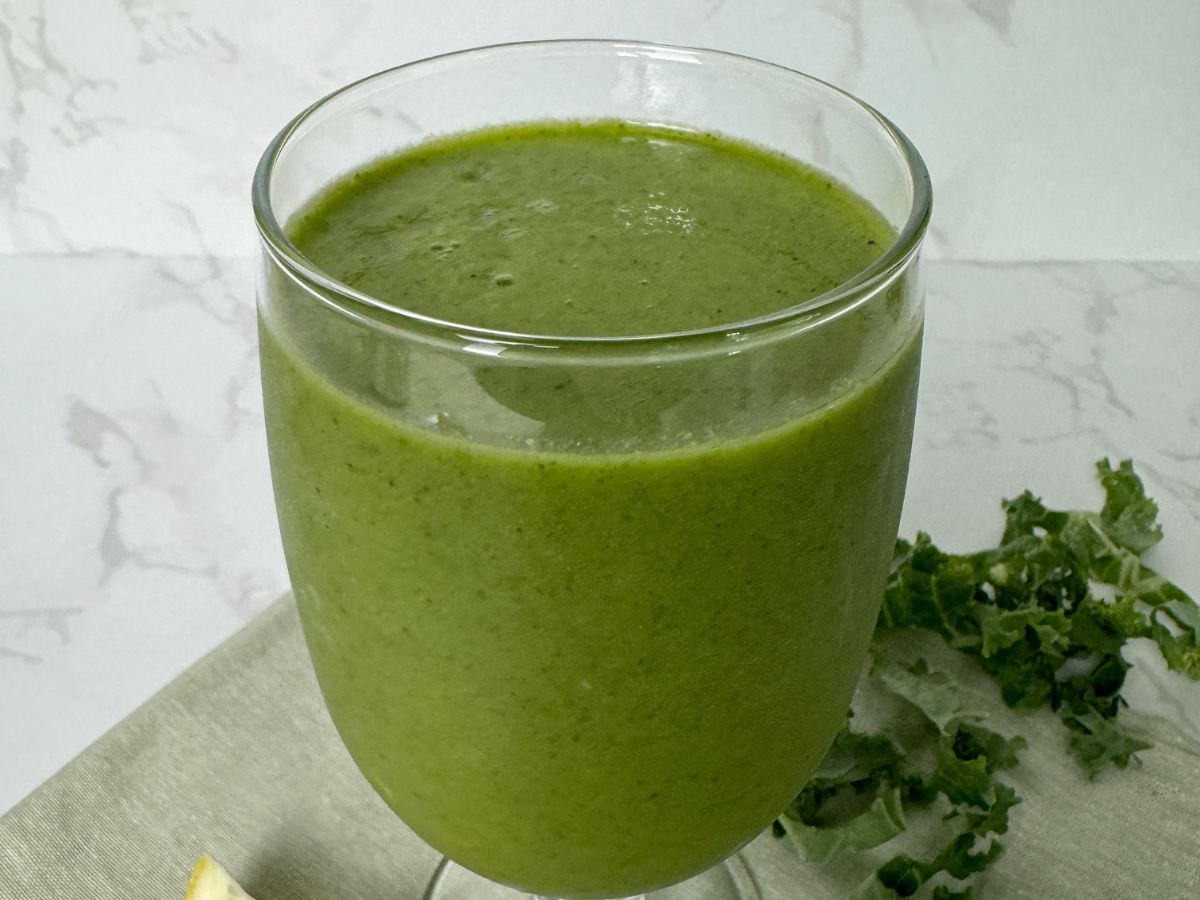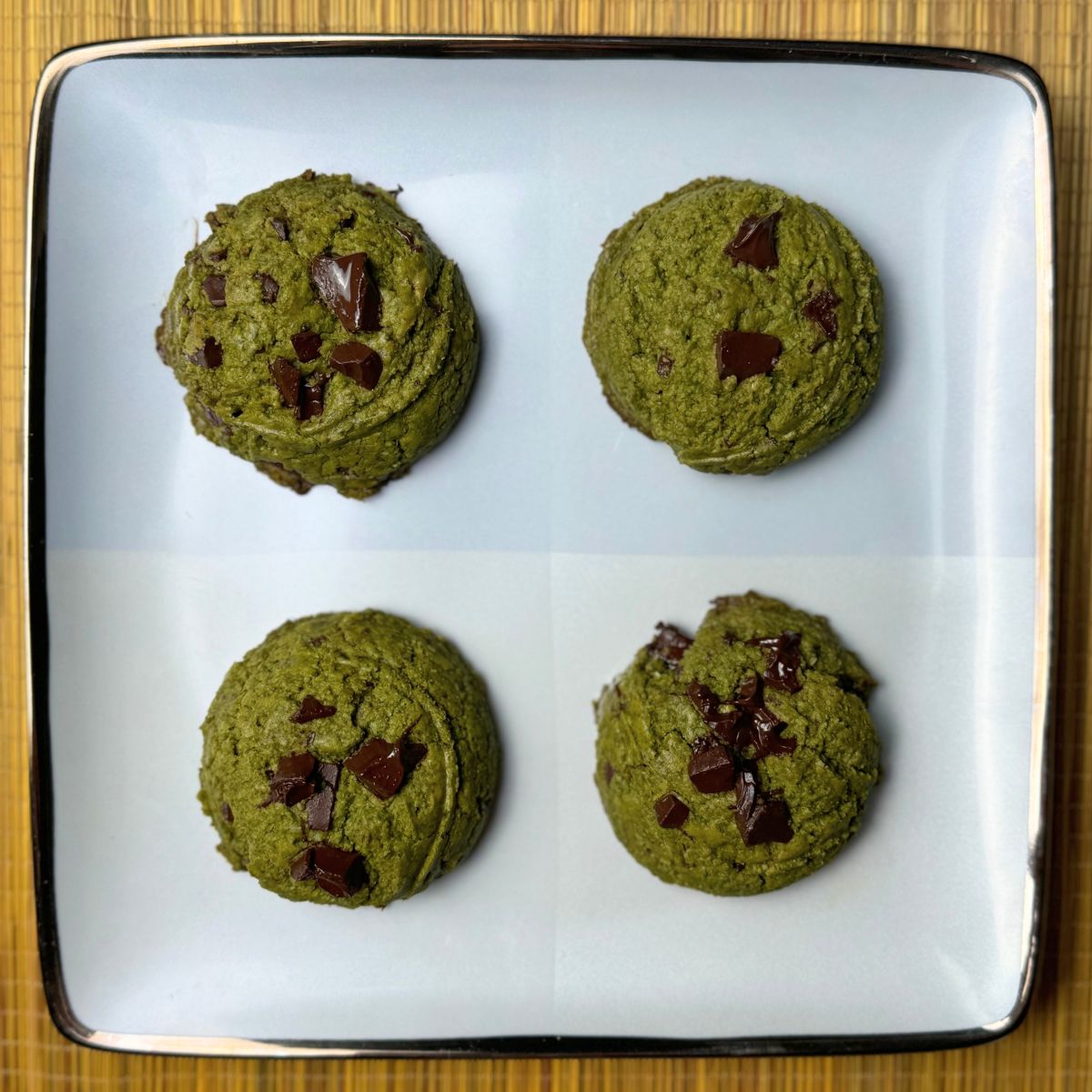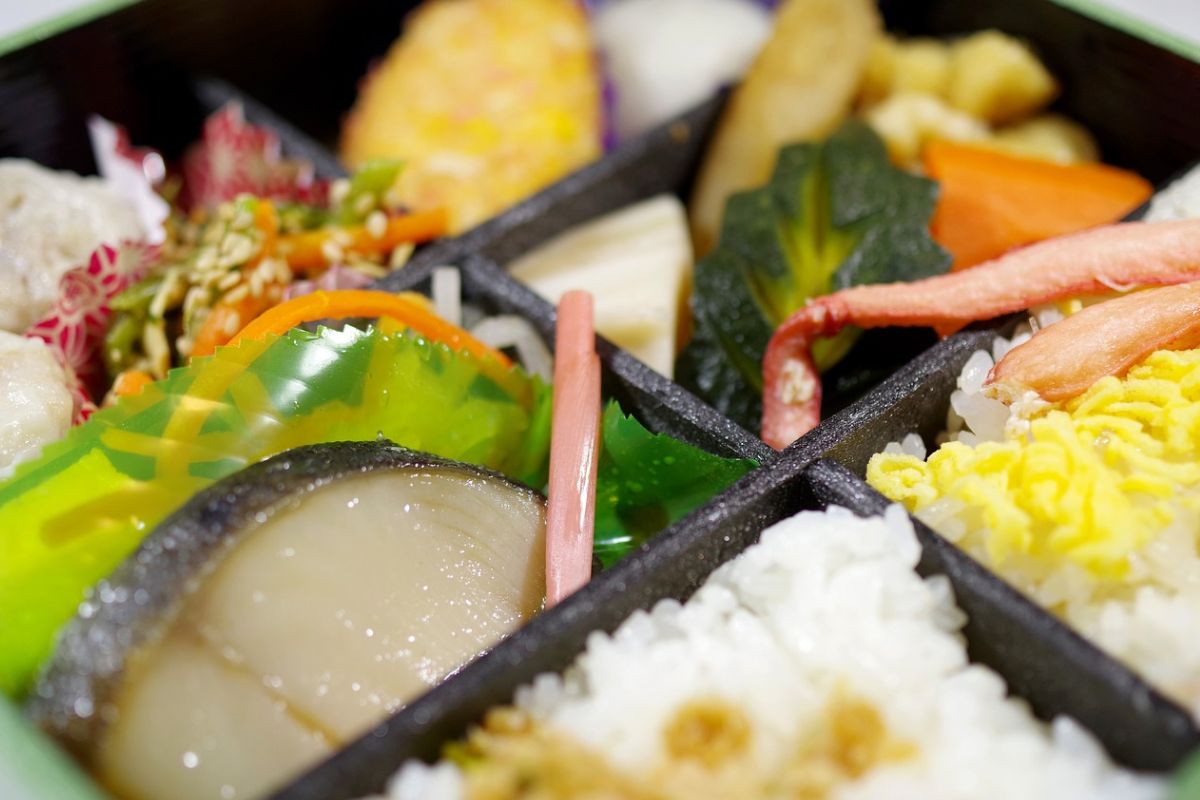As gut health continues to gain attention, we hear a lot about how our food choices impact the state of our gut. One great choice is matcha, the famous green tea known for its long history and modern health benefits.
But what exactly ties matcha to gut health? We uncover the links between this antioxidant powerhouse and a healthy microbiome, plus tasty ways to incorporate it into your diet.
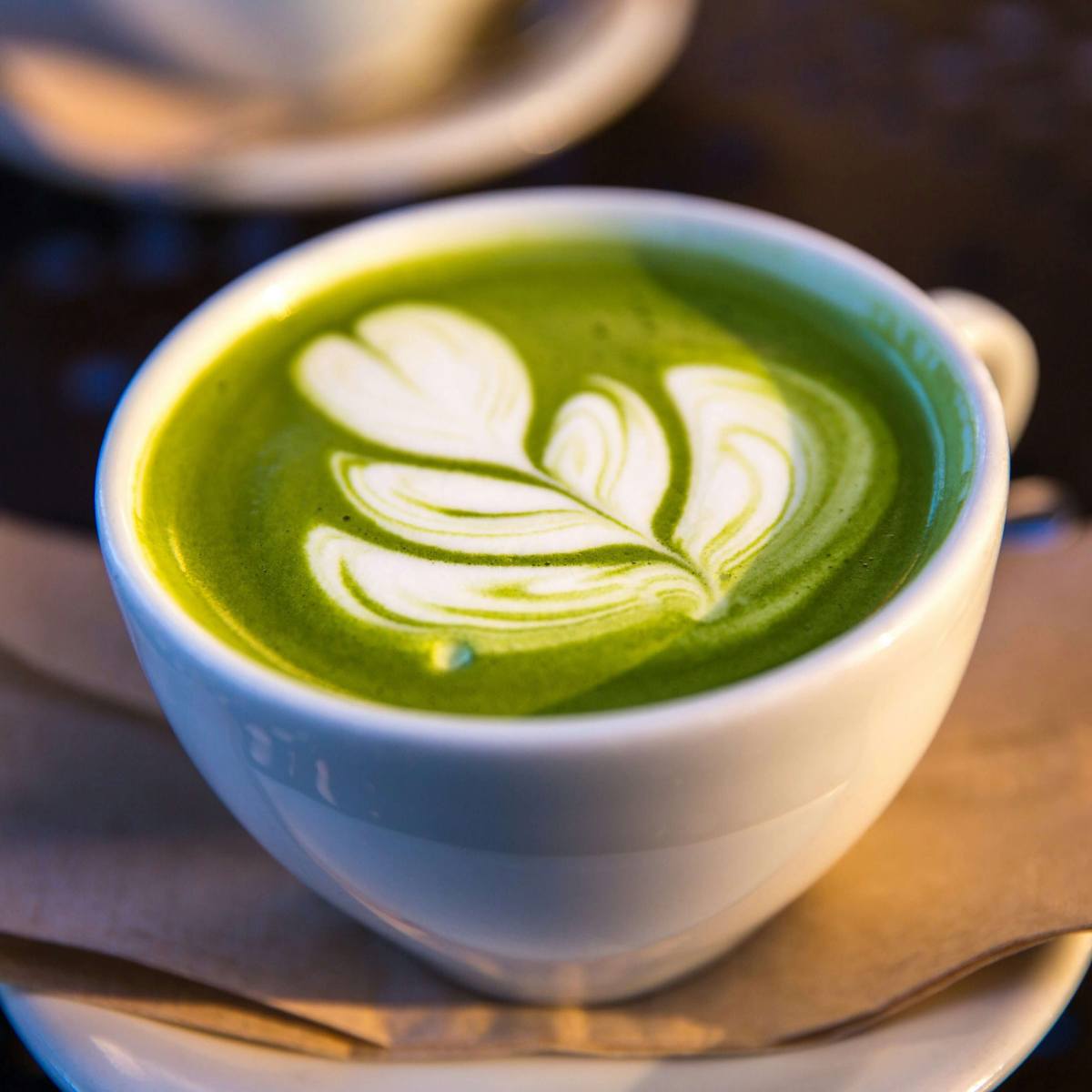
What is Matcha?
Matcha is green tea in powder form made from finely ground tea leaves. It has been the focal point of Japanese tea ceremonies for centuries and is celebrated for its vibrant green color, distinctive flavor, and numerous health benefits.
To make matcha, producers grow Camellia Sinensis tea plants in shady areas for several weeks before harvest to promote the formation of chlorophyll and amino acids.
They then hand-pick the leaves, steam and dry them to prevent oxidation, and finely grind them into a powder using traditional stone mills.
Matcha has been gaining popularity worldwide and can be found in various beverages, desserts, and savory dishes. It is prized for its ability to provide calm, focused energy without the jitters often associated with coffee.
In addition to offering a unique flavor, matcha has an impressive nutrient profile.

How is Matcha Good for Gut Health?
Matcha is believed to support gut health in several ways:
Antioxidants: Matcha is rich in catechins, an antioxidant that helps reduce inflammation and protect the gut lining from damage caused by free radicals.
Beneficial Gut Bacteria: Some studies suggest that the catechins in matcha help beneficial gut bacteria thrive, such as Lactobacillus and Bifidobacterium. These bacteria break down complex carbohydrates and fibers in the digestive tract and support nutrient absorption.
Digestive Support: Matcha contains a compound called EGCG (epigallocatechin gallate), which has been shown to help regulate digestive enzymes and promote healthy digestion.
Inflammation Regulation: Chronic inflammation in the gut is linked to various digestive disorders. The antioxidants in matcha, including EGCG, may help reduce inflammation in the gut and alleviate symptoms of conditions like irritable bowel syndrome (IBS) and inflammatory bowel disease (IBD).
Why Should We Be Concerned with a Healthy Gut?
Maintaining a healthy gut is crucial for our digestive health and immune function. A healthy gut supports efficient digestion and reduces bloating, gas, diarrhea, and constipation.
When we have a healthy gut microbiome, we can better defend against harmful pathogens, infections, and autoimmune diseases, while boosting the production of antibodies.
You may have heard people discuss the “gut-brain axis”, a connection between the gut and the brain via a network of nerves, hormones, and biochemical signaling. A healthy gut microbiome has been associated with improved mood, reduced stress, and lower risk of mental health disorders such as depression and anxiety.
Finally, good gut health can improve nutrient absorption and manage inflammation. A robust gut microbiome helps break down and metabolize nutrients from food. Our bodies can then effectively absorb vitamins, minerals, and other essential nutrients for overall health.
Imbalances in the gut microbiome can cause chronic inflammation, leading to various health problems like inflammatory bowel diseases, cardiovascular disease, and metabolic disorders.
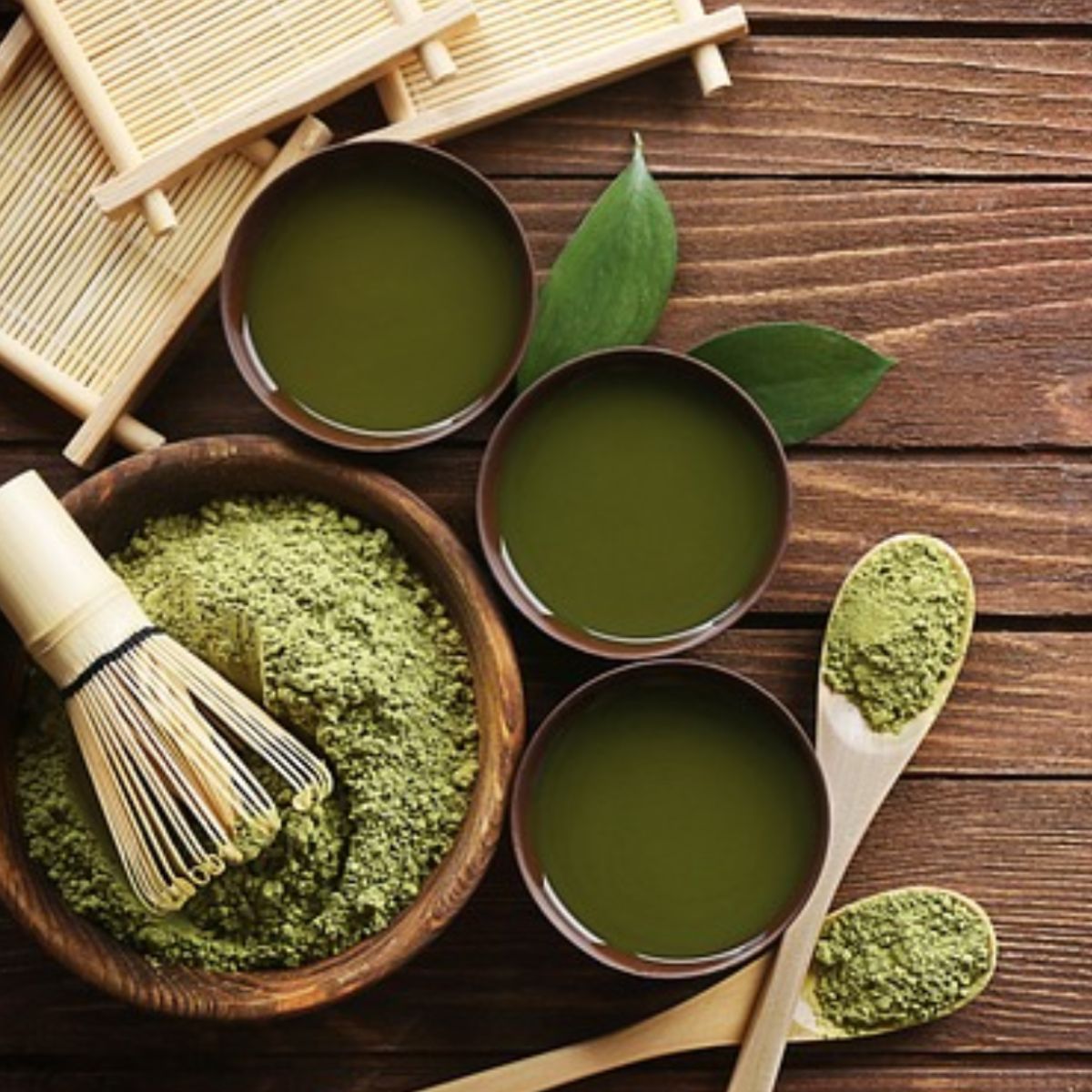
Is Matcha the Same as Green Tea?
Matcha and green tea come from the same plant, camellia sinensis, but they differ in how they’re processed, how they’re prepared, and the nutrition they offer.
Processing: Matcha is made from shade-grown green tea leaves that are finely ground into a powder, while regular green tea is made from whole tea leaves that are dried and steeped in hot water.
Preparation: Matcha is traditionally prepared by whisking the powdered tea with hot water until frothy. Unlike brewed green tea where tea leaves are steeped in hot water and then discarded, with matcha, you consume the entire leaf.
Nutrient Content: Because we consume matcha in powdered rather than brewed form, it contains higher concentrations of certain nutrients, such as antioxidants and chlorophyll. However, both matcha and green tea are rich in beneficial compounds like catechins.
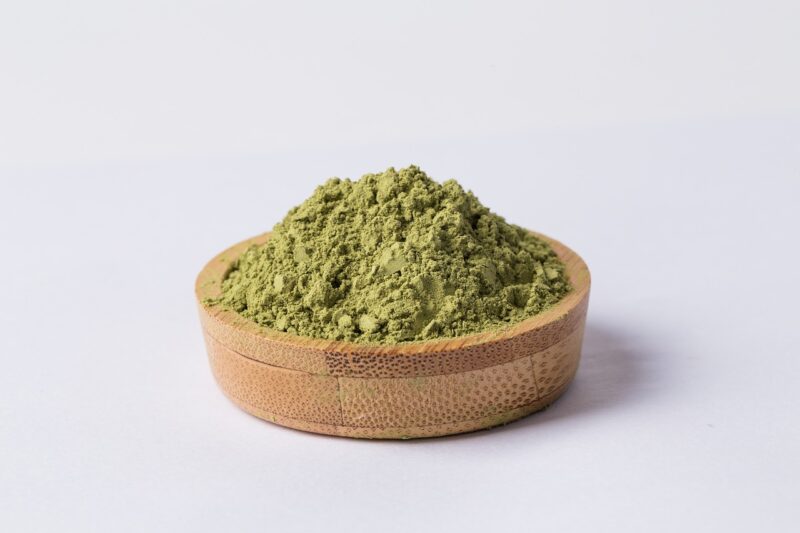
What Does Matcha Taste Like?
Matcha has a unique flavor that can be described as rich, earthy, and slightly bitter, with grassy undertones.
The taste can vary depending on the quality of the matcha, where it was grown, and how it’s prepared.
High-quality matcha is prized for its smooth and creamy texture, combining sweet and savory notes.
Some people may detect hints of umami, a savory taste often associated with foods like mushrooms and seaweed, in certain grades of matcha.
How Does Matcha Affect Our Gut Microbiota?
Matcha is high in catechins, an antioxidant that helps reduce inflammation and protect the gut lining from damage caused by harmful free radicals.
Some studies suggest that the catechins in matcha may promote the growth of beneficial bacteria in the gut, such as Lactobacillus and Bifidobacterium, which play a role in maintaining gut health and supporting digestion.
A 2023 study on the effects of matcha consumption on the human gut microbiota observed a significantly higher number of unique bacterial genera in the gut microbiota among participants who drank matcha for 2 weeks versus a placebo group.
In addition, the study saw an increase in beneficial Coprococcus and a decrease in potential pathogenic Fusobacterium amongst the matcha-drinking group.
Coprococcus is a type of bacteria that naturally lives in our gut microbiome and plays a role in maintaining gut health and supporting digestive function. Researchers have linked a shortage of beneficial Coprococcus to obesity, obsessive-compulsive disorder, anxiety, and inflammatory disorders of the central nervous system.
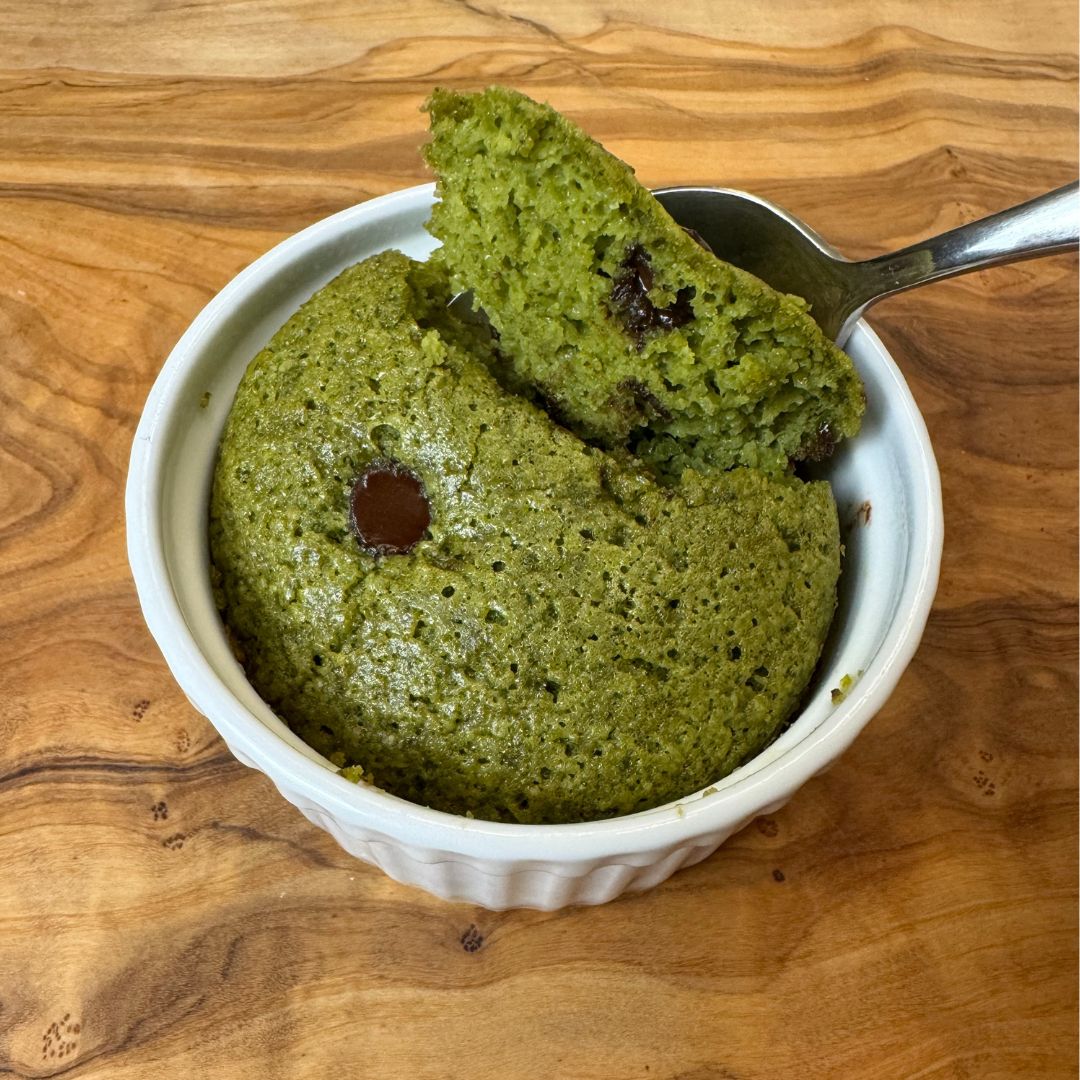
Above: Easy Matcha Cake (gluten-free)
Additional Health Benefits of Matcha
Several studies indicate that green tea catechins may boost fat oxidation, energy expenditure, and insulin sensitivity. By changing substances in our intestines, they reduce inflammation and stress and control how our bodies absorb and process fats.
Green tea catechins help keep our metabolism cranking and can reduce appetite, all of which may contribute to better metabolic health and weight management.
Above: Matcha Smoothie with Tropical Fruit and Greens
How To Incorporate Matcha in Your Diet
There are numerous creative ways to incorporate matcha into your diet, beyond drinking it as a tea. Here are some ideas:
Matcha Latte: Enjoy a frothy matcha latte by whisking matcha powder with hot water and then adding steamed milk (dairy or plant-based) and a touch of sweetener if desired. Try our Vanilla Matcha Latte recipe here.
Smoothies: Blend 1/2 to 1 tsp of matcha powder into your favorite smoothie recipe for a boost of antioxidants and green color. Matcha pairs well with fruits like bananas, mango, and berries. Try our Matcha Smoothie with Tropical Fruit and Greens.
Baked Desserts: Use matcha powder to flavor baked goods such as cookies, cakes, muffins, and pancakes. Matcha powder gives your baked goodies a vibrant green hue and a hint of earthy flavor. Dark chocolate pairs beautifully with matcha in our Matcha Chocolate Chip Cookies and Easy Matcha Cake.
Matcha Oatmeal: Stir matcha powder into cooked oatmeal along with your favorite toppings like fruit, nuts, and seeds for a nutritious and energizing breakfast.
Matcha Ice Cream: Make homemade matcha ice cream by combining matcha powder with a custard base or coconut milk and freezing it in an ice cream maker. Enjoy the refreshing and creamy treat on a hot day.
Matcha Chia Pudding: Stir matcha powder into a mixture of chia seeds and coconut milk or almond milk to make a delicious and gut-healthy pudding. Try our Matcha Chia Pudding recipe

